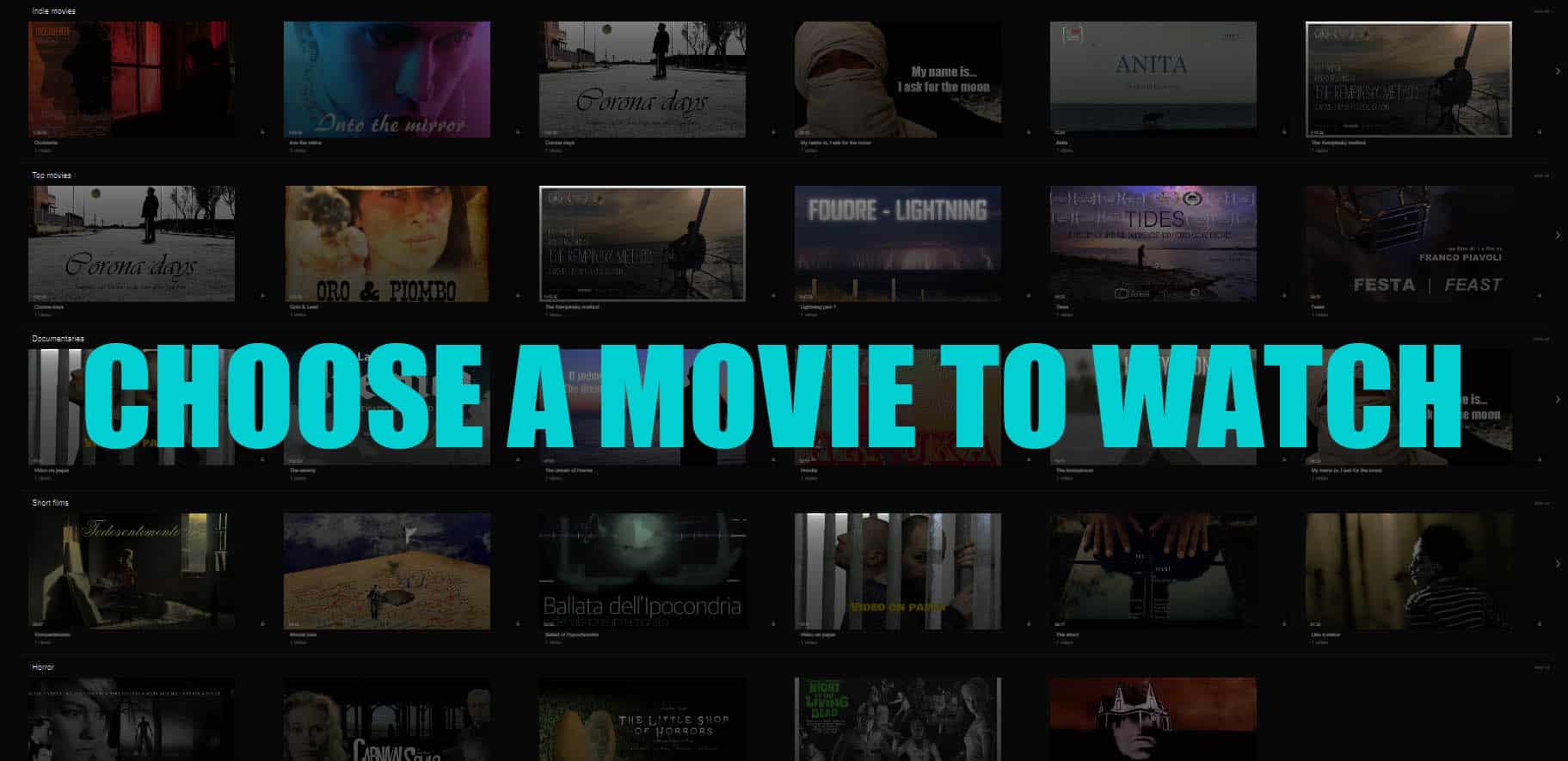Who is Alessandro Negrini?

Alessandro Negrini was born and raised in Turin. Even as a boy he was a flaneur, he loved to take long exploratory walks in the city, trying to perceive the stories, people and places in the atmosphere.
Before embarking on a career as a director Alessandro Negrini does various jobs: janitor in a school in Turin, clerk in a circus, museum guide, delivery boy. At the end of the 90s he traveled around Europe, constantly moving and writing short stories, as if he wanted to expand his flaneur activity to the whole continent. In 2001 he moved to live permanently in Ireland.
Alessandro Negrini’s films’s films have been awarded at many international festivals around the world. The themes he loves to tell are social exclusion, magical realism and resistance. But above all the theme of the border, understood as physical, anthropological and mental meaning. They are poetic works in balance between fiction and documentary.
During his formative years he participated in the prestigious writing workshop Held by the experimental director David Gothard, an important personality who works between London and Dublin.
Paradise

The film Paradise is a documentary shot for BBC British television, winner of countless international awards and prizes. The film is set inneighborhood The Fountainin Derry, Northern Ireland. It is a cinematic story whose main theme is the magical power of music to overcome borders and bring people together. There are several ghettos in the world, where people are deprived of their freedom. But there is no ghetto worse than the one where there is no music. Music capable of moving, of giving birth to love between people, of making people dance and laugh.
In The Fountain, Northern Ireland, there is no music and there are only social barriers. It is a ghetto transformed by politics into an open-air prison, divided by religious differences. A place surrounded by an invisible barbed wire. Roy Arbuckle, a musician, decides together with director Alessandro Negrini that it is time to break the bars of that prison. He gathers his 70-year-old musical band, The Signetts, who once made the community dance, to play at The Fountain.
He wants to open the Memorial Hall, the most famous ballroom in the city, and bring together Catholics and Protestants, two communities divided for years, in a great dance evening. A risky event in Northern Ireland, but necessary to enlighten the souls of the inhabitants and look to a different future.
Is it possible to make a dream come true through cinema? Looking at the experiment that director Alessandro Negrini made with his film Paradise, it seems so. The project was born out of friendship with the musician Roy Arbuckle and led the people of The Fountain to reunite and dance together again after many years of divisions and conflicts.
Cinema thus becomes in this case a concrete tool for changing society. Filming with his camera the preparation of the musical evening and overcoming the fears of the Fountain wall a dream comes true through a film. The happy past returns, despite the advanced age, in the lives of the inhabitants of the neighborhood, with the desire to be together again and have fun. If every film proposes an ethical destination like Paradise, cinema could have the strength to really change reality.
Start free trial now
Negrini’s intention is to make a passionate portrait of the people who live behind this wall and behind this fear. To do this, he does not choose the formula of the film denouncing the Northern Irish war, but a path of sharing and creation with the protagonists that goes beyond the film itself. Create a film with his own style, the language of fairy tales and dreams: a dream world that is capable of expressing the truth more than concrete facts.
Starting from a chat, a few beers and a drink in a pub, Negrini makes a choral film that also has the musicians and the inhabitants of the neighborhood as authors. Without writing a precise screenplay, the director and the musician follow the evolution of events and film everything, without knowing what will happen, if the evening can be realized and what the reaction of the people will be.
The film was co-written with David Wingate, his mentor, and produced by the BBC. The protagonists have an average age between 70 and 85 years. Negrini says that the fundamental principle of making the film was to have fun and play, to remain faithful to the spontaneity and truth of what was happening, to the sincere relationship with the people involved.
Paradise has won many international awards and official nominations in more than 50 film festivals around the world. Best Documentary Award at Eger Slow Film Festival (Hungary), Best Documentary Award at Global Cinema Festival, Indore (INDIA), Audience Award at Wurzburg International Film Festival (Germany), Best Documentary Award at Dhaka International Film Festival (Bangladesh), Best Documentary at the Archipelago Rome Film Festival (Italy), Best Film at We The People Film Festival, London.
Tides
His latest film Tides – A Story of Lost and Found Lives and Dreamshas won 6 international awards. It is a poetic and dreamy autobiography of the River Foylein Northern Ireland. A fascinating flow of dream images on the themes of border, time and dreams. Tides was also successfully distributed in the United States.
The idea of the story of Tides comes from an intuition of the director Alessandro Negrini observing the river, a border of water that divides the city of Derry, in Northern Ireland. The director’s interest has always been to narrate the world of the marginalized and the vanquished in a poetic form.
He is fascinated by discovering stories in lost and forgotten places, finding ideas in a bar counter, on a journey to unknown places. The theme of the border is what interests him most in its physical, anthropological and psychological dimension. The choice to make the border itself the protagonist of the film was a way to look at history and men across the point of the river.
Tides is not a film about the Northern Irish War and the separations it created. While shooting the film Alessandro Negrini met many people who live on the banks of the river and had their stories told. He realized at a certain point that what all these stories had in common was the forgetfulness of the most vital dreams.
Those dreams that keep you alive is that they are the norm when we are still a young age. All these people that Negrini met, all these stories that he collected for the film seemed in the end to say only one thing: at some point a part of me went out, I took my most important dream, I closed it in a drawer and I threw away the key. The Derry River, flowing towards its mouth, seems to be looking for those lost dreams.
Through the eyes of the Negrini river, he can have the necessary awareness to tell the Great Story. A story that confirms how the peoples of every nation are constantly manipulated to be deprived of their dreams. Those in power bring people into conflict, exploit them or make them exploiters. Society seems to feed on tame people, who accept to forget themselves and who are fooled by fear.
Tides is therefore a story dedicated to everyone those who have forgotten who they are, who have been overcome by fear and by ideological or religious divisions. It is a film about the nostalgia of what we have not been able to live to the end. Isn’t cinema and the art of storytelling giving life to something of potential that has not been able to sprout and grow in reality?
The Themes of the Film Tides
Oblivion, forgetfulness, spiritual unawareness seems to be the gravest disease of humanity. Power tries in every way to make us forget who we are, to condemn us to a kind of non-life. And most people, without the resources to react, are doomed to spin forever on the wheel of the system.
Reflecting on the concept of border, Alessandro Negrini reminds us that since ancient times every man who dared to cross pre-established borders was punished. But also that all of humanity’s progress is due to those who have found the courage to go beyond borders. Human society has created borders everywhere. National, cultural, social, ethnic borders.
According to Negrini, the true boundaries lie in our mind. It is our mind that has created the boundaries in physical reality, we ourselves are made of a boundary which is our physical body. But the mistake is being isolated and losing the awareness of being part of the Whole. People who are able to overcome mental and ego boundaries are able to mingle with things, as does the water of the Derry River.
Even the cinema produces its best works when it is able to cross the borders, of go beyond what has already been experienced. Tides was shot independently and achieved allowing Alessandro Negrini to have the maximum freedom of time. Towards the end of the film, however, the director realized that he was not completely satisfied with his work, that something was missing. But the film had already been edited and the budget was over. So he decided to create a crowdfunding to shoot and edit two new sequences.
He says of Tides’ projections: “I am always thrilled to see how the stories I bring to the big screen can translate into the lives of the people who see it. Perhaps the most beautiful compliment is the silent one: hearing the audience immersed in the history of this strange river, and at the end of the film, perceiving the desire of someone in the audience to regain possession of one’s destiny, and of the life ended in exile within oneself. ”
Watch Tides
Memories of Ice and Fire
Memories of ice and fire, in 2008, was the opening show of the Winter Olympic Games in Turin, filmed by Alessandro Negrini on commission from the Society of the Winter Olympic Games. It is a visual journey between the two essential elements of life, ice and fire.
Lies and Waves
Lies and waves, a short film from 2003, is an investigation on the border between normality and madness. Winner at the Spazio Torino Film Festival Preview, and Best Short Film at the Augsburg International Film Festival, Best Screenplay Award at the Modena Short Film Festival. Special screening at the Havana Film Festival, Cuba.
The House of Phrases
The house of phrases, a short film from 2002, won the award for best international short film at the Foyle Film Festival, and was selected in several international festivals.
Priority Mail
Priority Mail is a play from 2000 inspired by the exchange of letters of various English, Italian and Hungarian thinkers and intellectuals during the Nazi-Fascist dictatorship.






